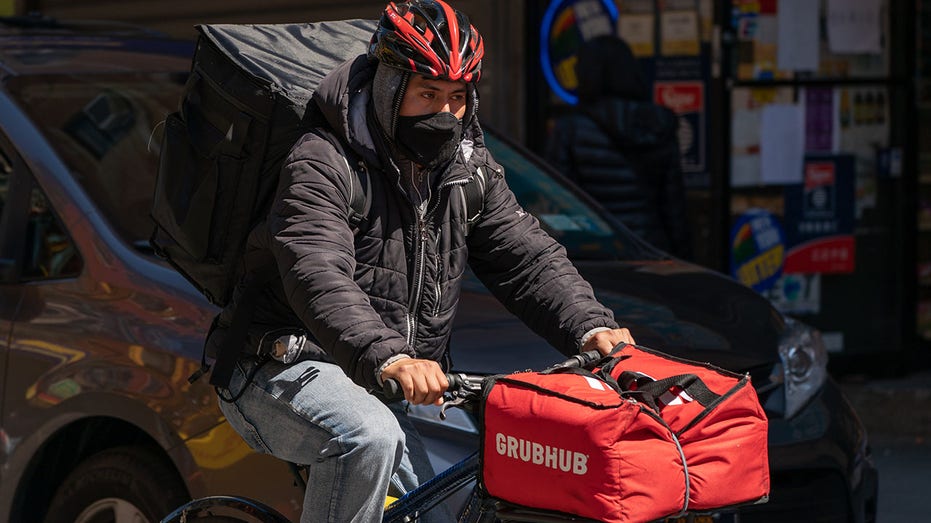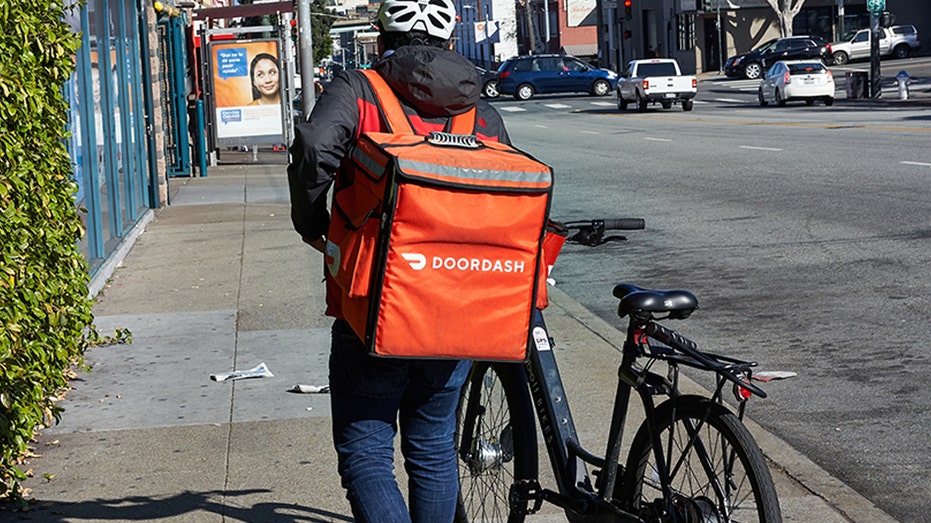Some NYC restaurants tire of forking over delivery-app fees
Businesses are finding a way around the issue by avoiding the platforms and taking ownership of the process
In recent years, New York City restaurants have complained about the fees that third-party ordering and delivery platforms, such as Grubhub and DoorDash, charge them. Those concerns have only escalated during the pandemic, when dining spots have become more dependent on meals to go for their financial survival.
Now, restaurants are increasingly finding a way around the issue by avoiding the platforms and assuming ownership of the process themselves. And they say the benefits go beyond the potential savings on third-party fees.
"It's having a direct line of communication with our customers," said Jon Sherman, chief executive officer of Sticky's Finger Joint, a chicken-centric chain with several locations in the city.
Indeed, a burgeoning industry has emerged of technology-focused companies that assist restaurants with creating, managing and marketing their own online ordering platforms and connecting them with delivery people. A few of the firms are based in the city, including Lunchbox, which says it has seen 700% growth in its business over the past year, and Traiilo, a company that focuses on Latinx-owned restaurants and other food and drink-related retailers.
Another major New York firm in the mix is BentoBox, which is perhaps best known for helping restaurants develop their websites, but can also assist with ordering platforms.
| Ticker | Security | Last | Change | Change % |
|---|---|---|---|---|
| GRUB | NO DATA AVAILABLE | - | - | - |
| DASH | DOORDASH INC. | 186.24 | +3.77 | +2.07% |
FOOD-DELIVERY INVESTORS ARE OVERSTUFFED
Most of these companies bill a monthly charge for their work instead of levying fees for each order, as the third-party ones typically do. At Lunchbox, the monthly cost can vary, but the average is $300, according to Nabeel Alamgir, the company's CEO. While that is still a hit for restaurants, Mr. Alamgir said the third-party fees can surpass that amount with as few as about eight orders each month.
In the pre-pandemic era, third-party fees to restaurants could often equate to as much as 30% per order, according to restaurant-industry professionals. (The companies can also charge separate fees to customers.) The New York City Council passed legislation last year that temporarily limits the fees to restaurants to 20% -- 15% for delivery, 5% for other charges -- as a way to help restaurants during the health crisis. Although dining establishments can now welcome customers indoors and outdoors, they must contend with a state-mandated capacity limit of 50% and many say they are still heavily reliant on delivery.
Restaurants are concerned about what will happen after the legislation runs out, since the fee caps will no longer apply at a certain point after establishments are allowed to go to full capacity. City Councilman Mark Gjonaj, a Democrat who represents parts of the Bronx and helped push for the cap, said that he is looking at permanent legislation, since he believes that the boom in delivery via third-party platforms is here to stay.
"It's become natural to order your food online," Mr. Gjonaj said.

In recent years, New York City restaurants have complained about the fees that third-party ordering and delivery platforms, such as Grubhub and DoorDash, charge them. Those concerns have only escalated during the pandemic. ((Jeenah Moon/Bloomberg via Getty Images))
DOORDASH DRIVER DEMANDED SEX FROM CUSTOMER, THREATENED TO CANCEL ORDER
The third-party companies justify their fees by saying they are providing a powerful marketing platform that connects restaurants to plenty of customers. Plus, the companies can manage the delivery of food. Grubhub, for example, points to its network of 30 million diners and says its users placed $9 billion in orders on its platform last year.
"Grubhub supports restaurants so they can be more successful," said Grubhub Senior Vice President Kevin Kearns in a statement.
Third-party companies also say that government pricing regulations, such as the cap in New York, could force them to increase fees to consumers as a way to make up for the lost revenue from restaurants. In turn, they say that could lead to customers ordering less frequently from restaurants, which would affect what the dining establishments earn.
The third-party companies also note that their fees are adjustable based on the level of promotion and outreach a dining establishment seeks via the platform.
Restaurants have issues with the platforms beyond the fees, which is why many are also opting to assume responsibility for their ordering operations. Restaurants note that they can't connect directly with customers when diners go through third parties, whether it is to promote a future offer or correct a mistake with a previous order.

In the pre-pandemic era, third-party fees to restaurants could often equate to as much as 30% per order, according to restaurant-industry professionals.
That matters to Shai Sudai, managing partner of Nish Nush, a Mediterranean restaurant with two locations in Manhattan.
"If the customer has a problem, I can treat him personally and make sure it's not going to happen again," said Mr. Sudai, who has developed his own ordering platform.
The third-party companies say they are trying to give restaurants options beyond their platforms. DoorDash says it can help a restaurant set up its own ordering system if it prefers, albeit for a fee. Grubhub also has such services available.
GET FOX BUSINESS ON THE GO BY CLICKING HERE
As much as some restaurants say they are trying to bring ordering operations in-house, they say they must remain on the third-party platforms as well, since the platforms have such visibility and marketing clout. Plus, restaurants admit that many of their customers are simply accustomed to ordering through third parties.
"A lot of customers are loyal to their platforms," said Mr. Sherman of Sticky's Finger Joint.




















